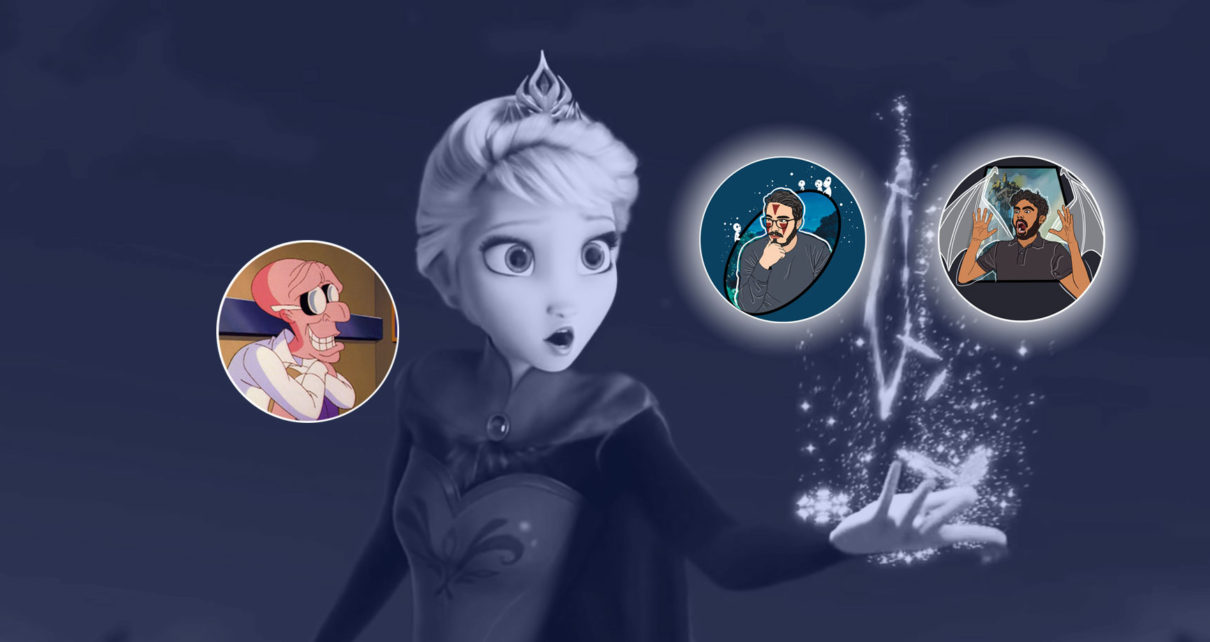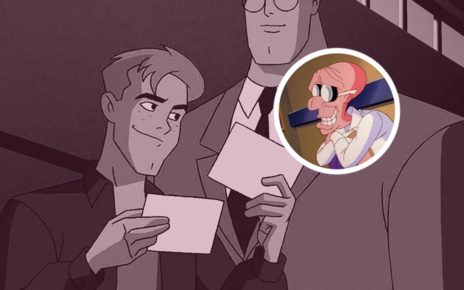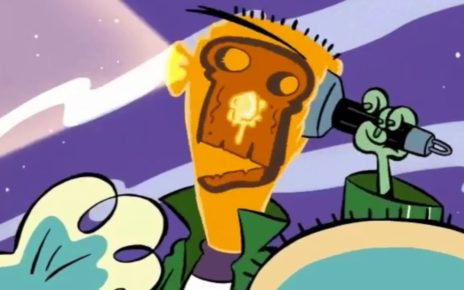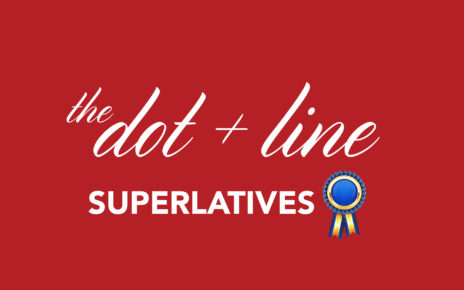Dear Dr. Scratchansniff,
Four years ago, we had a crazy idea: that there should be a pop culture publication that actually cared about cartoons. One that took them seriously as an art form. That truly valued what they said, and did, and stood for. That loved them. So we made one, and we told ourselves that it would be the best animation journalism website on the internet.
And now it’s over. We haven’t said everything we needed to say, or done everything we needed to do, and we’re honestly not sure we ended up with the best animation journalism website on the internet. But there’s only so far you can go with no money, and with scarce support, and with day jobs, and with limited free time, no matter how amazing your contributors are or how much effort you put in. There’s also only so far you can go in one direction when you feel you’re being pulled in several others, each of them presenting new challenges and new experiences of their own.

Doctor, we’re sad. We’re hesitant to lose this thing that we built, that we worked so hard on and love so much, and we’re scared to leave it—to leave our audience and the world at large lacking something we know was important, even if it wasn’t perfect. We’re going to miss working with each other, and we’re going to miss writing about whatever cartoons we want, however we want, with the full knowledge that no one but us could stop us.
There’s something terrifying, Doctor, about growing old. About realizing that, at some point, everything has to end, no matter how much it is loved. About realizing that, in the end, there’s only so much you can do. How can we overcome that fear? How can we fill that hole in our hearts? How can we possibly let it go?
Just Hoping to Make Everything Vaguely Bearable
(JHM + EVB)
Guten tag, JHM + EVB,
It’s over, isn’t it? But you two—unlike one of the many animated luminaries whose letters I’ve answered over the years—you are ready to move on. With resources diminishing, priorities competing, and time’s arrow marching forward, you’ve realized that you just need a little change. And while change is an undeniable constant in life, it’s something we all struggle to process and understand, meinself included! That’s why I’m looking to mein, ahem, my fellow ‘toons to help guide you through this transition.
Everything ahead of us is totally unknown, and there’s no guarantee that everything is going to be alright. It’s exciting, but it’s also pretty scary, y’know?
—Jake Jr., from Adventure Time
As Jake the Dog’s favorite pup so aptly summarizes, we can never really know what will we will find on the other side of a change. That uncertainty is what makes change both thrilling and terrifying! There is no way to ensure that things will turn out the way we hope or expect. While preparing and planning for a change does not guarantee a particular outcome—life always finds a way to interfere, doesn’t it?—it can help us feel more confident and secure during a transition. It can also help us navigate the inevitable challenges we face during the process.
Use your favorite method of self reflection—be it journaling, meditating, songwriting, or simply talking it out—and ask yourself a few questions. What are my intentions and goals for this change? What’s the best possible outcome, and what’s the worst? What’s the most likely outcome? What am I expecting will happen, and how will I feel if my expectations are not met? What do I need cope with and process negative feelings, should they arise? Who is a good source of support for me? Think of your answers as the basis for a flexible roadmap outlining how you’ll navigate this journey. Revisit and revise it as you encounter each dead end and drop off, each twist and turn.
Everything has a beginning and an end. Life is just a cycle of starts and stops. There are ends we don’t desire, but they’re inevitable, we have to face them. It’s what being human is all about.
—Jet Black, from Cowboy Bebop
No matter the tenor of the change—joyous, necessary, tragic—change is always accompanied by loss. Whether the loss is big or small, expected or surprising, loss signifies that something has come to an end. As one wise, if deeply imperfect, ISSP officer turned bounty hunter says, there will always be losses that are more difficult to face than others, and the best way to cope with loss is to engage with it directly: to face the loss head on. In other words, we must take time to grieve what has been taken away or left behind. The more we can engage with that grief, getting comfortable in our discomfort, the more readily we can accept what has changed and move forward.
Grief is a complex emotion that everyone navigates differently. There are a few specific emotions, however, that many will cycle through as they process a loss. The Kübler-Ross model, colloquially known as the Five Stages of Grief, outlines the phases one may pass through as they grieve: denial, anger, bargaining, depression, and acceptance. Since this model was developed, we’ve learned that these stages are not experienced linearly. We’ve also learned that this model does not describe everyone’s grief: some will only go through one or two stages, and others will experience none at all. Regardless, the Kübler-Ross model provides us with a useful framework for understanding what we’re experiencing when we’re mourning a loss.
Feeling your feelings fully will help you heal, but that does not mean you have to suffer constantly. Staying stuck in suffering can actually be detrimental, leading you to identify with your suffering and incorporate it as a part of your personality. You may choose to mitigate or take breaks from your pain by trying some self soothing strategies, like the ones outlined on this Dialectical Behavioral Therapy (DBT) worksheet.
You may also choose to seek support from a therapist or counselor as you mourn. A mental health professional can guide you through your process and teach you ways to manage these sometimes overwhelming emotions. To find a therapist, contact your insurance company or search Psychology Today‘s therapist database. Support services like Crisis Text Line and NYC WELL (for all the New Yorkers out there) can provide in-the-moment support and counseling, along with referrals to accessible mental health resources. Should you find your depressed feelings intensifying and notice you’re having thoughts about hurting yourself or ending your life during your grieving process, contact the National Suicide Prevention Lifeline (1-800-273-8255) or go to your nearest emergency room for help.
Despite the non-linear nature of grief, there is one phase that tends to mark the end of the grieving process: acceptance. Instead of classifying acceptance as one of the stages of grief, though, some have suggested it may be more accurate to say that acceptance is grief’s polar opposite. One study showed, for example, that grief and related emotions, like depression and anger, decreased as acceptance increased. Learning how to accept what has changed or been lost has been shown to promote both mental and physical health. Acceptance may promote more positive feelings, often times being accompanied by a feeling of peacefulness and internal quietude.
Let it go.
—Elsa, from Frozen
What does it really mean, though, to accept a loss? Acceptance means seeing the situation for what it really is, whether we like it or not, and releasing our fantasies about what happened or what could have been. It means integrating what we have learned during the grieving process and adjusting to life without whatever, or whomever, it is that we have lost. It means understanding that there are so many things in life that we cannot control. In other words, in the words of our favorite icy royalty (with my apologies to the Ice King), acceptance means letting go.
I’ve often encountered people who conflate letting go with forgetting. I can’t emphasize enough that to let go does not mean to forget. First of all, it’s impossible to simply will oneself to forget something, especially when that something is laden with heavy feelings. And secondly, but no less importantly, our memories can serve as a source of comfort when we find ourselves longing for what we have lost.
Time is an illusion that helps things make sense,
—BMO, from Adventure Time
so we are always living in the present tense.
It seems unforgiving when a good thing ends,
but you and I will always be back then.
While the Dot and Line may no longer be creating cutting edge cartoon content, JHM + EVB, you will always have your memories of your time working together. The late nights watching and writing, the connections with and mentoring of other cartoon-obsessed collaborators, the feelings of pride you had when you wrote a particularly poignant piece—no one can take those memories away from you. And in your case, the two of you will literally always be back then: you can pull up the website anytime you need to scratch that nostalgic itch.
If you stay flexible and open as you plan for your future, give yourself time to grieve, and eventually accept what has changed, you will be able to move forward, taking on the challenges of whatever comes next in your careers. And das, JHM + EVB? Das is very, very gut.
This final Ask Scratchy question was submitted by the founders of the Dot and Line, John Maher and Eric Vilas-Boas.
Ask Scratchy is for educational and entertainment purposes only. Although the character Dr. Scratchansniff is modeled after two psychoanalytic luminaries, Sigmund Freud and Otto Kernberg, this column is not intended to be a substitute for professional medical advice, diagnosis, or treatment. Always seek the advice of your physician, mental health professional, or other qualified health provider with any questions or concerns you may have regarding a medical condition.

Thanks for reading The Dot and Line, where we’ve written about animation of all kinds for more than four years. We’ll miss you! If you’ll miss us too, show us some love on Twitter and show our writers the money on GoFundMe. Read our goodbyes here: That’s All, Folks!





